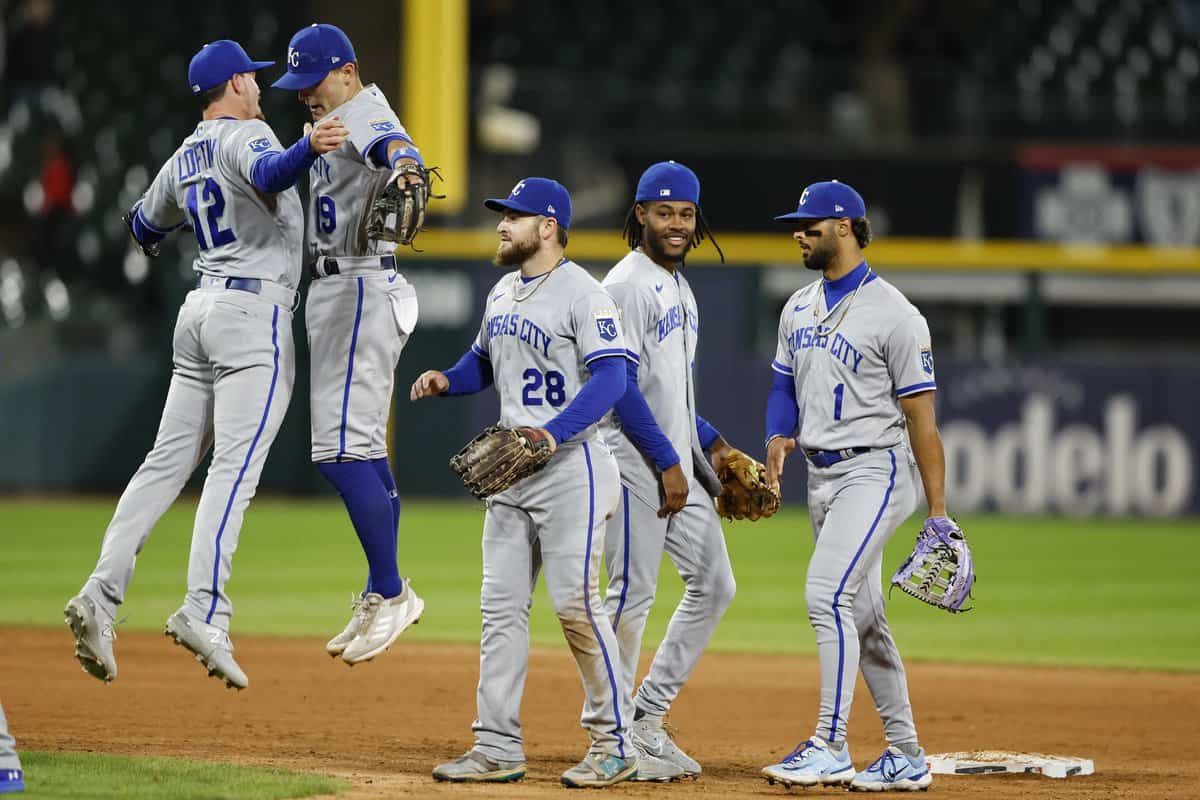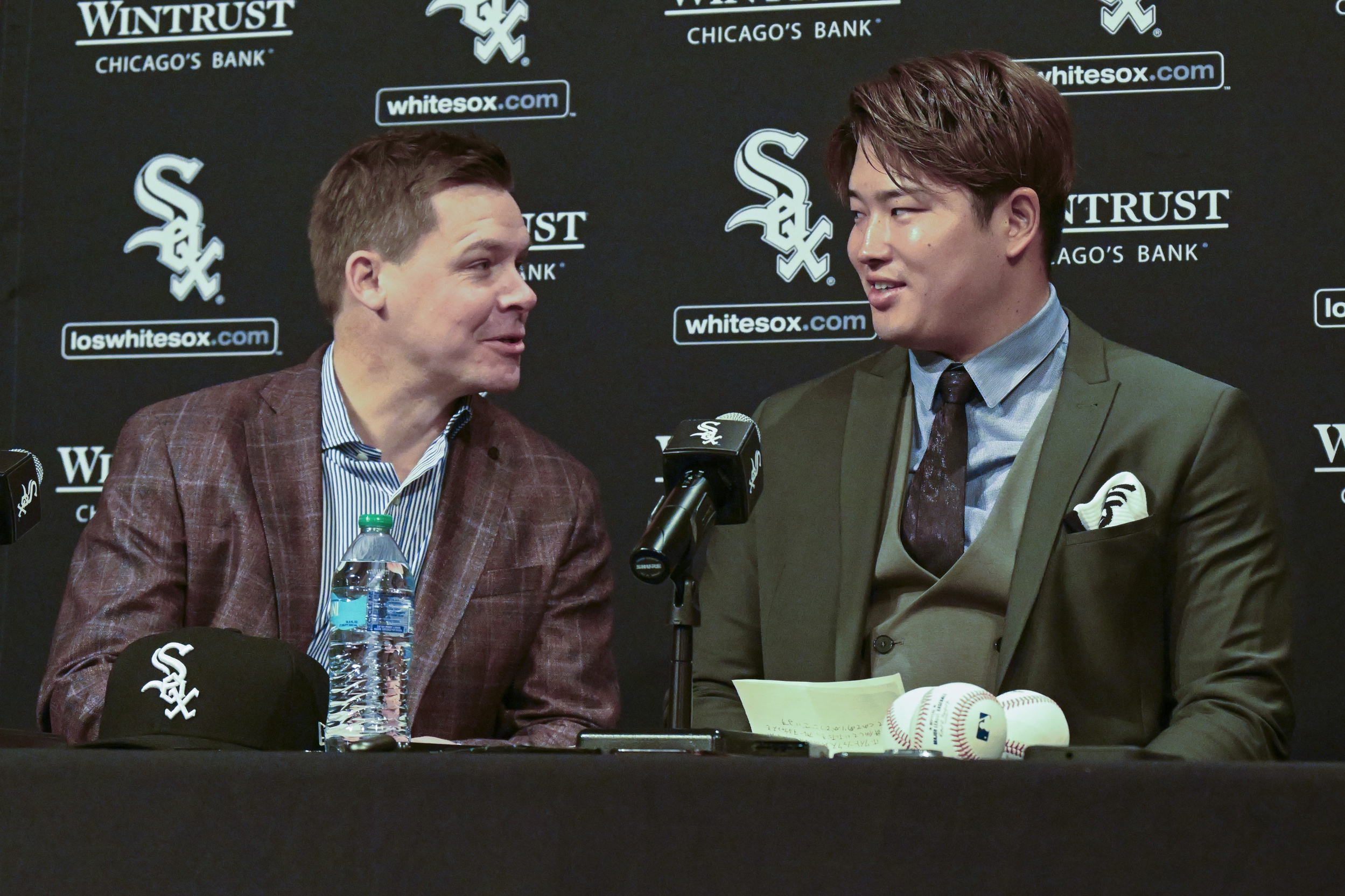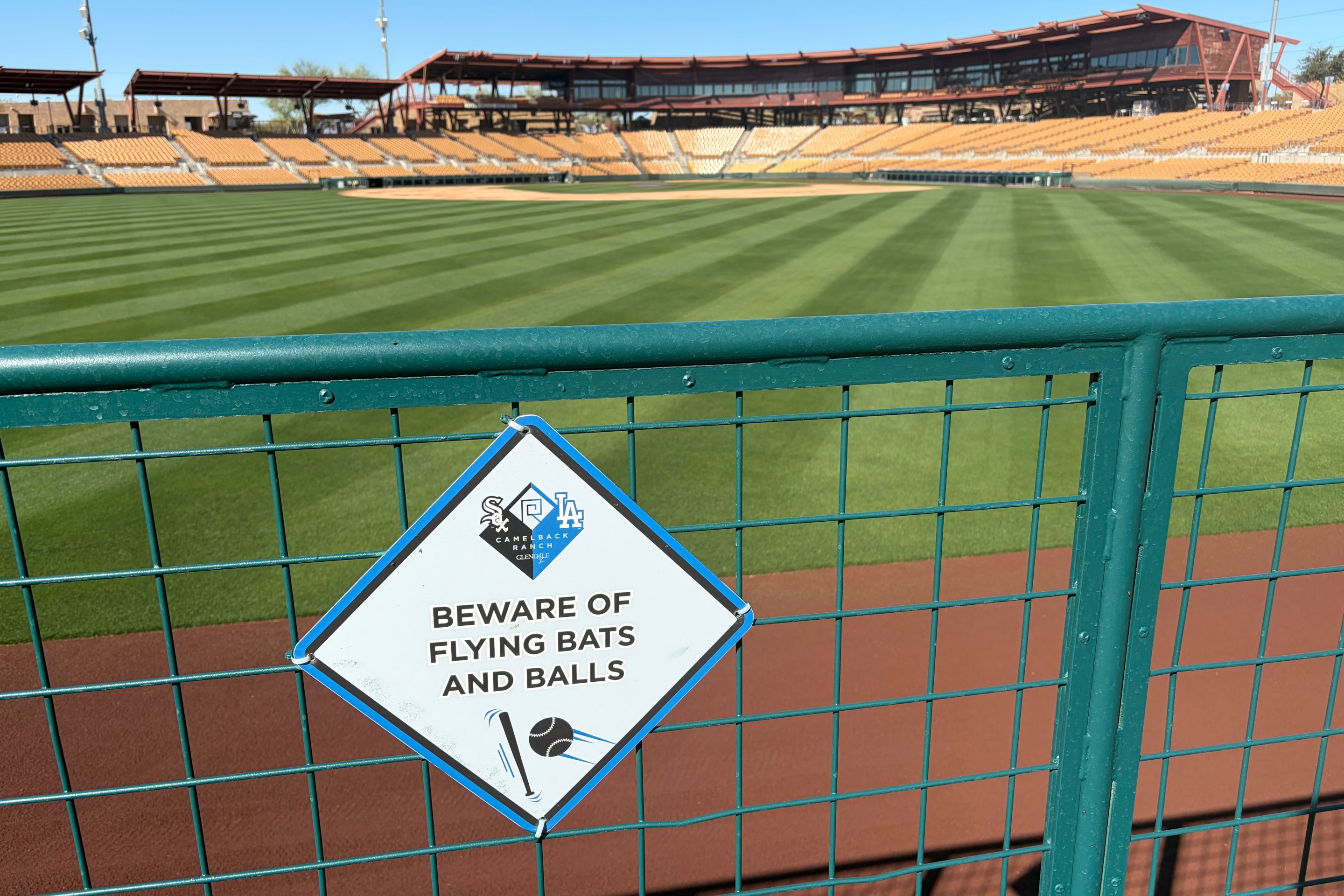As any Rick Hahn could tell you, winning the winter doesn't necessarily reflect a team positioned for greatness. Sometimes a team just conducts a lot of business because it had to many holes to fill, and the flurry of activity masked how much progress remained.
With six new players on their payroll, the Royals have signed twice as many free agents as the next closest team, and the bulk shopping is inspiring non-Bob Nightengale reporters to do Bob Nightengale math:
But $105 million is not a terribly impressive number for six players, and outside of Seth Lugo, the contracts are merely acceptable amounts for acceptable players. There's just a lot of them in short order:
- Seth Lugo: 3 years, $45 million
- Michael Wacha: 2 years, $32 million
- Hunter Renfroe: 2 years, $13 million
- Chris Stratton: 2 years, $8 million
- Will Smith: 1 year, $5 million
- Garrett Hampson: 1 year, $2 million
This feels like a strategy ripped out of the White Sox's playbook, in that if you fill all the dead spots with 2 WAR players, you'll gain at least 12 wins out of it. The complication is that when you sign players who don't have much potential to deliver beyond 2 WAR, it's hard to compensate if and when some fall short of even the modest projections.
White Sox fans saw the pitfalls of this plan starting after the 2014 season, when the Sox signed Adam LaRoche, Melky Cabrera, David Robertson and Zach Duke around a trade for Jeff Samardzija, only to go from 73 wins to 76 wins in 2015. When they added Austin Jackson, Brett Lawrie, Mat Latos, and a new catching tandem of Dioner Navarro and Alex Avila the following winter, that nudged them all the way to ... 78 wins.
The White Sox's deployment of this strategy was a failure because it resulted in two national clubhouse incidents and a scorched-earth rebuild the following winter. They hung actual hopes on a team that wasn't projected to cross .500 despite all the activity, and they never found a way to outrun the math. The tepidly contested nature of the AL Central made it contention seem a lot closer than it actually was, and they fell for the mirage two years in a row.
The Royals are in a similar position making similar outlays, but they can avoid a similar fate if they don't hang the entire strategy on wins and losses. They shouldn't. At 56-106, they were one of three teams worse than the White Sox last year, and even if they were better by Pythagorean record, they still have to gain about 20 wins in a true-talent sense, and these signings can't be expected to get them there.
PERTINENT: White Sox one of few teams Royals could beat in 2023
Yet there are always intangible arguments for signing MLB-caliber players, whether it's because they provide a positive influence or merely insulate the team from cascading mistakes, like playing guys out of position or rushing them to the majors. Beyond that, the Royals stand to benefit more than most teams by making themselves merely decent for all sorts of reasons, including but not limited to:
Anti-tanking rules: Because the Royals were awarded/stuck with the No. 6 pick in the lottery for the 2024 draft, they won't be able to pick higher than 10th the following year, so there's no incentive to inflate the loss total.
Matt Quatraro: If you can increase the talent base across the roster, you can get a better idea of whether he might be a difference-maker as a manager. (The White Sox did not heed this lesson with Robin Ventura.)
Stadium funding: Paying for a respectable team might help John Sherman drum up more public support in his efforts to not have to pay so much for a new ballpark.
Broadcast uncertainty: As the Royals prepare to navigate a post-Bally Sports world, it's more incumbent on them to produce a team that fans might want to pay to watch, instead of passively receiving money from cable subscribers who never tuned in.
Under these circumstances, competency is its own reward, and the same might've been said about the White Sox had they not traded Marcus Semien for one year of Jeff Samardzija. That move started the clock and created pressure for the plan to work on schedule, and everything collapsed under the weight of actual expectations.
Jon Heyman says the Royals are probably done spending but still have trades to consider. If they truly rejected dealing Vinnie Pasquantino for Jesus Luzardo, they still might have their priorities in order.






